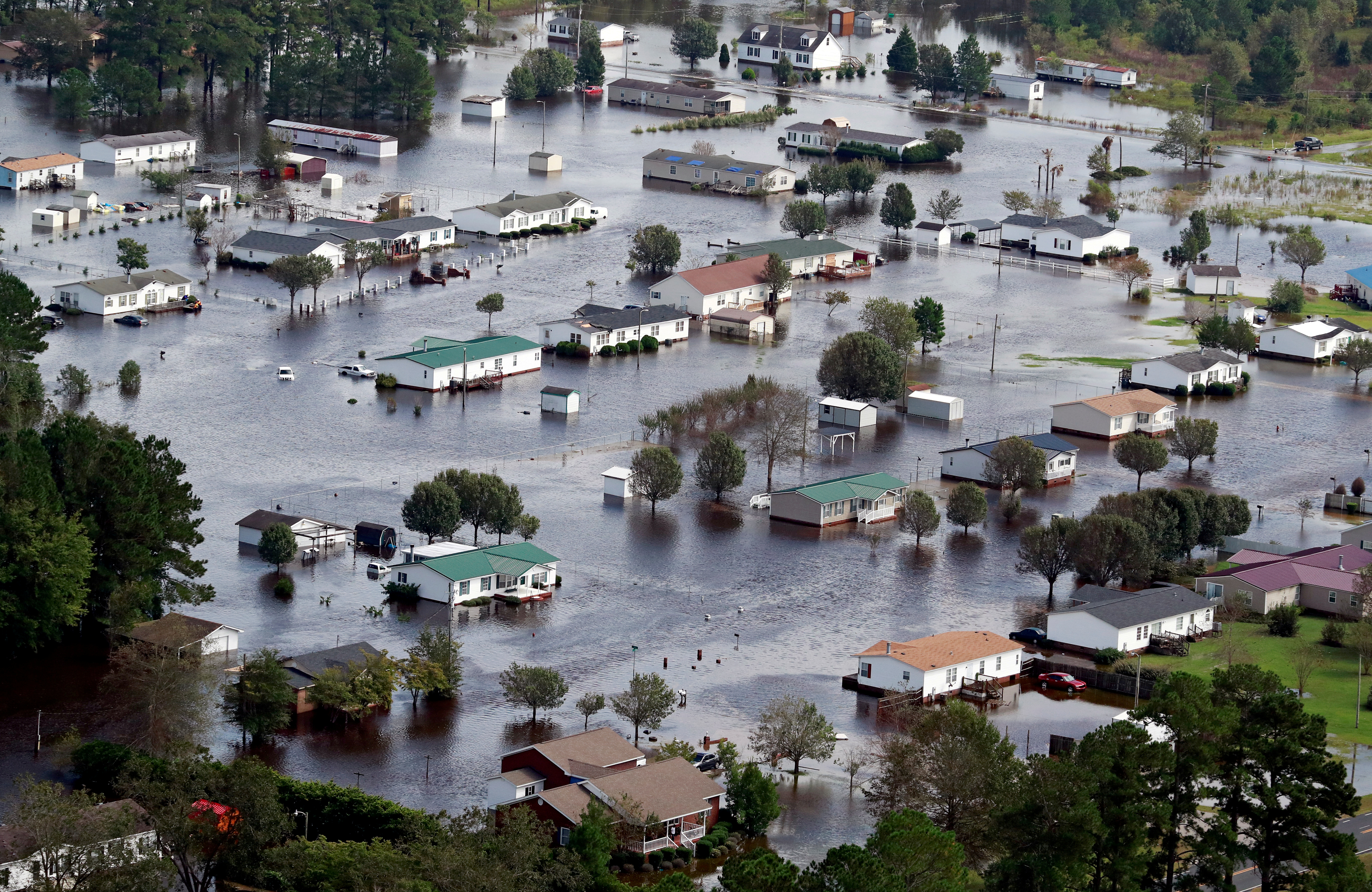- North Carolina Democratic Gov. Roy Cooper signed en executive order pushing new green policies.
- The governor claims these new policies will, among other things, “lessen the impacts” of future hurricanes.
- The latest science, however, does not support claims that hurricanes are becoming more frequent or intense.
North Carolina Democratic Gov. Roy Cooper signed an executive order Monday he says is meant to “combat climate change” and “lessen the impact of future natural disasters,” like hurricanes.
Cooper’s order requires state agencies to encourage people to buy more electric vehicles, use more wind and solar energy, and cut energy use at state-owned buildings. Cooper also asked agencies to promote “climate adaptation” and green energy use, including wind and solar.
“A strong clean energy economy combats climate change while creating good jobs and a healthy environment,” said Cooper. “With historic storms lashing our state, we must combat climate change, make our state more resilient and lessen the impact of future natural disasters.”
“Challenges as great as climate change can feel daunting, overwhelming, even immovable.We cannot let that paralyze us. With historic storms lashing our state, we must confront climate change.” – Gov. Cooper. https://t.co/nSgrrzUnN9 pic.twitter.com/0Vj72JQuqK
— Governor Roy Cooper (@NC_Governor) October 29, 2018
The order comes more than one month after Hurricane Florence dumped record amounts of rainfall over the Carolinas after making landfall as a Category 1 storm. Florence dumped 11 trillion gallons of rain over the Carolinas, causing devastating floods and taking more than 50 lives.
Democrats and environmentalists claimed the storm was made worse by man-made global warming. Some scientists said warm waters “supercharged” Florence and sea level rise made storm surge significantly worse. (RELATED: Al Gore Wades Into A Bitter Battle Over The Fate Of Fracking In Colorado)
However, not all scientists agreed. Cato Institute atmospheric scientist Ryan Maue pointed out that Florence formed over “abnormally cool” ocean waters, then weakened over cooler waters — the opposite of what forecasters expected.
“There is no reason to suggest that global warming or an ‘ocean heat wave’ supercharged Hurricane Florence,” University of Washington climate scientist Cliff Mass said in September. “So the ‘ocean heat wave’ theory is obviously bogus.”
“Challenges as great as climate change can feel daunting, overwhelming, even immovable.We cannot let that paralyze us. With historic storms lashing our state, we must confront climate change.” – Gov. Cooper. https://t.co/nSgrrzUnN9 pic.twitter.com/0Vj72JQuqK
— Governor Roy Cooper (@NC_Governor) October 29, 2018
The order comes more than one month after Hurricane Florence dumped record amounts of rainfall over the Carolinas after making landfall as a Category 1 storm. Florence dumped 11 trillion gallons of rain over the Carolinas, causing devastating floods and taking more than 50 lives.
Democrats and environmentalists claimed the storm was made worse by man-made global warming. Some scientists said warm waters “supercharged” Florence and sea level rise made storm surge significantly worse. (RELATED: Al Gore Wades Into A Bitter Battle Over The Fate Of Fracking In Colorado)
However, not all scientists agreed. Cato Institute atmospheric scientist Ryan Maue pointed out that Florence formed over “abnormally cool” ocean waters, then weakened over cooler waters — the opposite of what forecasters expected.
“There is no reason to suggest that global warming or an ‘ocean heat wave’ supercharged Hurricane Florence,” University of Washington climate scientist Cliff Mass said in September. “So the ‘ocean heat wave’ theory is obviously bogus.”

FILE PHOTO: Houses sit in floodwater caused by Hurricane Florence in this aerial picture on the outskirts of Lumberton, North Carolina, September 17, 2018. REUTERS/Jason Miczek
Mass also said that “most of the major impacts of the storm was because it slowed down near the coast, causing an extended period of rain.” He added there’s “no credible theory of observational evidence that such slowing down has anything to do with global warming.”
While scientists predict continued global warming could make future hurricanes more intense, the latest United Nations climate report found that many studies showed a “decreasing trend in the global number of tropical cyclones and/or the globally accumulated cyclonic energy.”
Cooper, however, says his executive order will make North Carolina “more resilient and lessen the impact of future natural disasters” by putting more electric vehicles on the road and cutting emissions.
But even if Cooper’s plan achieves its goal of cutting state greenhouse gas emissions, it would have virtually no impact on projected global warming, based on climate model simulations.
For example, the Obama administration’s pledge to cut U.S. emissions 26 to 28 percent below 2005 levels by 2025 was only projected to avert 0.001 degrees Celsius of projected global warming a year.
If that’s the impact on future temperatures cutting emissions for the entire country would have, North Carolina’s emissions cuts would have an even less significant impact.
Follow Michael on Facebook and Twitter
All content created by the Daily Caller News Foundation, an independent and nonpartisan newswire service, is available without charge to any legitimate news publisher that can provide a large audience. All republished articles must include our logo, our reporter’s byline and their DCNF affiliation. For any questions about our guidelines or partnering with us, please contact licensing@dailycallernewsfoundation.org.


